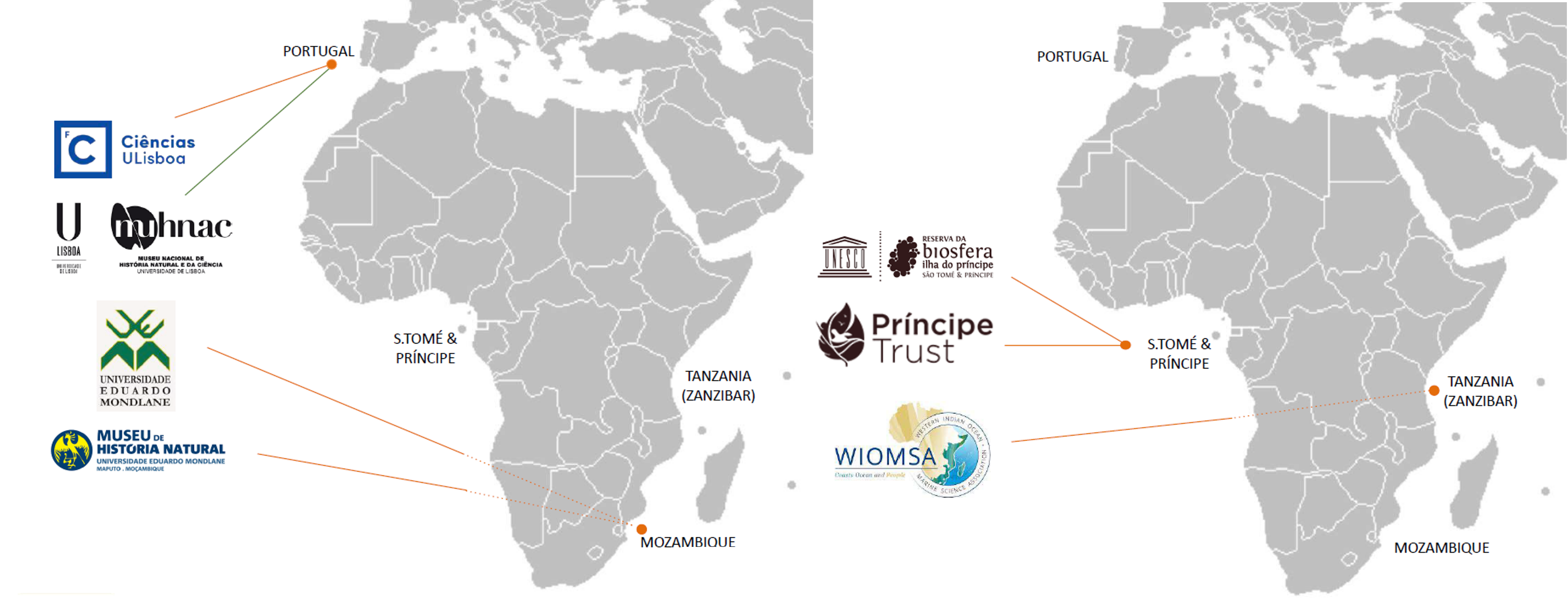COBIONET
Coastal biodiversity and food security in peri-urban Sub-Saharan Africa: assessment, capacity building and regional networking in contrasting Indian and Atlantic Oceans

The COBIO-NET project is dedicated to study coastal marine biodiversity and its contribution to food security in peri-urban areas, where the intensity of exploitation and degradation pressures on natural systems and impacts coastal human well-being. It aims to contribute to the stability of food sources and sustainable development of coastal areas. It further envisages raising public awareness by wide dissemination of results, increasing local capacities and promoting networking at different levels. It targets the adjacent marine environments of Maputo in Mozambique and Santo António do Príncipe in S Tomé & Príncipe, strategically chosen for providing comparisons between Indian and Atlantic Oceans, increasing transnational and regional collaboration.
The Consortium of the project includes a core of well-established higher education bodies with a long history of intense collaboration, and actively engaged in ongoing collaboration targeting coastal biodiversity, its resource and human impacts, both from research and capacity building perspectives (FCUL and UEM), institutions with high capacity for establishing biodiversity repositories, dedicated to outreach and dissemination with active collaboration (UL/MUHNAC and MHNM), institutions responsible for managing biodiversity resources and public awareness collaborating in Príncipe (PBR/GOV and FP and a regional body with a pivotal role in the coastal and marine environmental sciences of the Western Indian Ocean, including research, networking, governance and capacity building, with permanent collaboration with other partners (WIOMSA). It further includes researchers with solid curricula on biodiversity, natural sciences, social sciences, coastal management, capacity building and science networking.
The project expected outcomes are the assessment of biodiversity and ecosystem condition and their relation to stability of resources, optimized processes for ecosystem rehabilitation, establishment of biodiversity online repositories, and direct impacts on scientific and coastal communities derived from networking, capacity building and dissemination actions.
Consortium:

